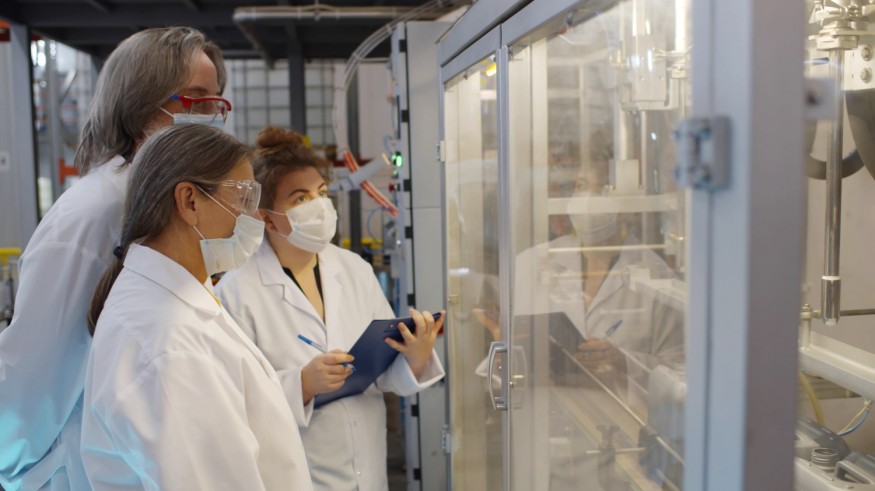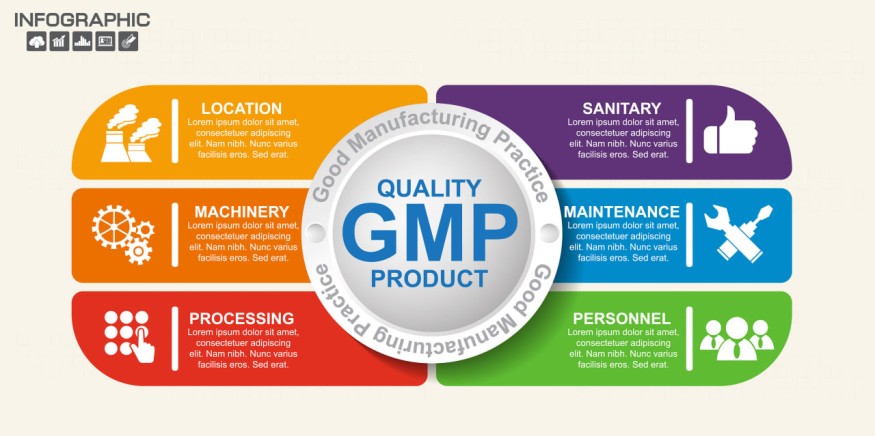
Every day, biotech products enhance the quality of life for millions of people around the world. Producing these products requires strict adherence to quality and safety standards, whether it's advanced therapeutics, vaccines, biofuels, genetically engineered organisms, or traditional yogurt.
Because these products offer solutions to some of the most pressing challenges of our times, their safety, efficacy, and quality are paramount. These properties are inherently dependent on the manufacturing processes used to produce them.
One fundamental concept in the production of biotech products is Good Manufacturing Practice or GMP Manufacturing, a system for ensuring that products are produced under quality standards. You may have come across this on product labels of food products, pharmaceutical products, and supplements.
This blog will examine the science behind GMP manufacturing and how it ensures safety, standardization, and quality in the different biotechnology niches.
GMP Manufacturing: A Scientific Foundation For Safety
GMP Manufacturing encompasses a set of guidelines and regulations that aim to ensure the consistent production of safe and high-quality biotech products. Key reasons why GMP manufacturing can ensure the quality and consistency of products include the following:
Safety in Production
GMP guidelines cover virtually every aspect of the manufacturing process. This includes how raw materials are received and stored, products are made, and finished products are packaged and distributed.
Stringent procedures for equipment, facilities, and manufacturing processes are outlined, often including airlocks and changing areas to reduce the chance of product contamination, with dedicated zones for handling certain high-risk materials.
Quality Control And Process Validation
GMP emphasizes the importance of quality control at every stage of the manufacturing process. Every aspect of the production process is scrutinized, monitored, and documented to prevent any risk of contamination, errors, or inconsistencies in the final product, especially biologics.
There are also specific rules about process validation, demonstrating that a particular process, such as sterilization or purification, consistently produces the desired result. For instance, the affected processes are readily corrected because deviations or risks are discovered promptly. All these ensure consistent quality and minimal delay on the production timeline.
Traceability and Accountability
GMP requires thorough documentation and record-keeping of all manufacturing activities. This enables traceability and accountability throughout the entire production process. With clear documentation, manufacturers can easily track and investigate any issues that may arise, ensuring the safety and integrity of the final product. Regular audits and inspections of manufacturing facilities by internal quality assurance teams and external regulatory bodies.
Equipment Validation, Maintenance, and Calibration
GMP guidelines cover a range of manufacturing equipment to ensure it is fit for its intended purpose, cleaned properly, properly maintained, and regularly calibrated. This helps to ensure process efficiency and the safety of the product. In biotech companies, this could include everything from simple tools like balances and pH meters to complex machinery like autoclaves, bioreactors, freeze dryers, and packaging machines.
By implementing GMP, manufacturers such as Glycosyn, a leading biotech company specializing in the production of therapeutic proteins, can minimize the risks associated with the production process while ensuring the safety of the end users. Glycosyn reduces batch-to-batch variations by following standardized procedures and using validated methods resulting in product uniformity, enhancing safety, and allowing clinicians to rely on its products.

The Importance of GMP In Biotechnology
GMP manufacturing ensures that every product is consistent and controlled. This means that regardless of when or where a product is manufactured, consumers can trust that the product they receive is safe, effective, and of high quality.
GMP Manufacturing is of paramount importance in the field of biotechnology due to several key reasons:
Patient Safety
The ultimate goal of biotech products is to improve patients' lives. By adhering to GMP guidelines, manufacturers take significant strides in ensuring the safety of their products and protecting the well-being of patients who rely on these treatments.
Regulatory Compliance
GMP guidelines are often mandated by regulatory authorities worldwide. Compliance with these regulations is essential for obtaining product approvals and ensuring market access. Manufacturers who disregard GMP standards may face severe consequences, including product recalls or legal repercussions.
Industry Reputation
GMP Manufacturing instill confidence in the biotech industry as a whole. By adhering to these standards, companies demonstrate their commitment to safety, quality, and ethical production, enhancing the industry's reputation and fostering trust among various stakeholders.
Regulatory bodies like the Food and Drug Administration (FDA) in the U.S., the European Medicines Agency (EMA) in the EU, and the World Health Organization (WHO), recognize GMP as a benchmark for quality. These organizations often require products to be produced under GMP conditions before granting regulatory approval. Hence, adhering to GMP can mean the difference between a product reaching the market or not!
GMP fosters a culture of continuous improvement, as companies must regularly evaluate their processes and procedures to maintain their certification. This encourages innovation as biotech companies strive to improve their processes and techniques to meet and exceed the high standards set by GMP.
Conclusion
In today's world, the importance of GMP cannot be overstated. As biotechnology evolves, the complexity of products and processes will only increase. GMP provides a framework for managing this complexity, ensuring that even the most sophisticated biotech products are produced to the highest quality standards-minimizing risks and enabling the development of safe and effective treatments.
The science behind GMP manufacturing is more than just a set of rules or guidelines. By adhering to GMP guidelines, companies are invested in patient safety and commit to quality, safety, efficacy, production efficiency, and maintaining the high standards expected in the biotech industry.












